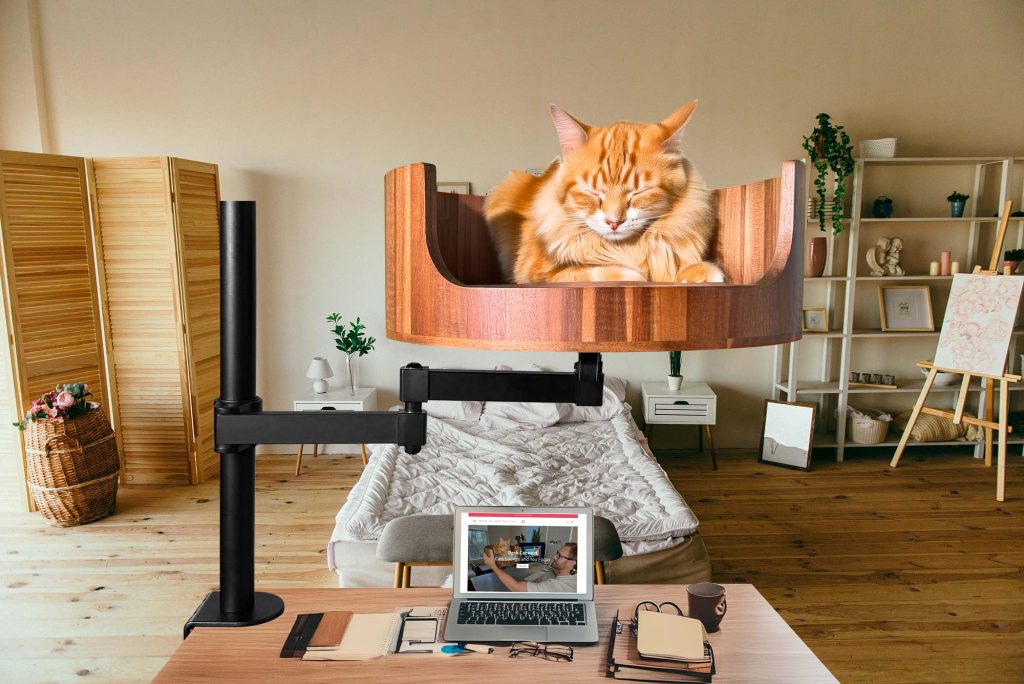Does your cat’s loud breathing keep you up at night? Understanding the causes of your feline friend’s noisy breathing can help you find solutions to provide them with relief. From respiratory issues to obstructions in the airways, there are several reasons why your cat may be breathing loudly. In this article, we will explore the common causes of loud breathing in cats and offer potential solutions to help your furry companion breathe more comfortably.
One possible reason for your cat’s loud breathing could be a respiratory infection, which can lead to congestion and difficulty breathing. Another common cause is feline asthma, a chronic condition that causes inflammation and constriction of the airways. Additionally, obstructions in the nasal passages or throat can also result in loud breathing sounds. By understanding the underlying cause of your cat’s noisy breathing, you can work with your veterinarian to develop a treatment plan that addresses their specific needs. In the following sections, we will delve deeper into these potential causes and explore various solutions to help your cat breathe easier.
1. Loud breathing in cats can be caused by various factors such as obesity, respiratory infections, allergies, and even stress.
2. Regular vet check-ups are essential to identify and address any underlying health issues that might be causing your cat to breathe loudly.
3. Keeping your cat at a healthy weight through proper diet and exercise can help reduce breathing difficulties.
4. Environmental factors such as dust, smoke, and strong odors can also contribute to loud breathing in cats.
5. Providing a well-ventilated and clean living space for your cat can help alleviate breathing problems.
Causes of Loud Cat Breathing
There are several potential causes of loud cat breathing, ranging from benign reasons to more serious health issues. One common cause is a respiratory infection, such as a cold or flu, which can cause inflammation and congestion in the respiratory tract. Other possible causes include allergies, asthma, or even a foreign object stuck in the airway. In some cases, loud breathing may be a sign of a more serious condition, such as heart disease or lung cancer. It is crucial to consult with a veterinarian to determine the underlying cause of your cat’s loud breathing.
Solutions for Loud Cat Breathing
The best course of action for addressing loud cat breathing will depend on the underlying cause. If the issue is a respiratory infection, your veterinarian may prescribe antibiotics or other medications to help clear up the infection. Allergies may require allergy testing and treatment with antihistamines or steroids. For asthma, your vet may recommend medications to help control inflammation in the airways. In cases where a foreign object is suspected, immediate medical attention may be necessary to remove the object. It is essential to follow your vet’s recommendations closely to ensure the best outcome for your cat’s health.
Preventing Loud Cat Breathing
While some causes of loud cat breathing may be beyond your control, there are steps you can take to help prevent respiratory issues in your feline friend. Keeping your cat’s living space clean and free of irritants, such as dust and tobacco smoke, can help reduce the risk of allergies and respiratory infections. Regular check-ups with your vet can also help catch any potential issues early on, allowing for prompt treatment. Providing your cat with a nutrient-rich diet, regular exercise, and a stress-free environment can also help support overall respiratory health. By taking a proactive approach to your cat’s care, you can help minimize the risk of loud breathing and other respiratory problems.
## FAQ
### Can the Desk Cat Nest help with my cat breathing loudly?
While the Desk Cat Nest is primarily designed as a cozy sleeping space for cats, providing a comfortable and stress-free environment for your pet can potentially help alleviate issues related to loud breathing. However, it is essential to monitor your cat’s breathing and consult with a veterinarian if you notice any concerning symptoms.
### How can the Desk Cat Nest improve my cat’s respiratory health?
The Desk Cat Nest offers a quiet and secure resting place for your cat, which can help reduce stress and anxiety that may contribute to loud breathing. Additionally, the soft and plush material of the nest provides a comfortable surface for your cat to breathe easily while sleeping.
### Is the Desk Cat Nest suitable for all cat breeds?
Yes, the Desk Cat Nest is designed to accommodate cats of all breeds and sizes. The spacious interior and soft cushioning offer a welcoming space for any cat to relax and rest comfortably.
### How should I introduce my cat to the Desk Cat Nest?
To introduce your cat to the Desk Cat Nest, place the nest in a quiet and familiar area where your cat likes to sleep. You can attract your cat’s interest by adding some treats or toys inside the nest. Allow your cat to explore the nest at its own pace and provide positive reinforcement for using it.
### Can the Desk Cat Nest help reduce loud breathing due to hairball issues?
While the Desk Cat Nest may provide a cozy and secure place for your cat to rest, it is essential to address any underlying health issues such as hairballs that may be causing loud breathing. Regular grooming, proper hydration, and a balanced diet can help prevent hairball problems in cats.
In conclusion, choosing a Desk Cat Bed can greatly benefit cats who suffer from loud breathing issues. The raised platform of the bed helps to keep airways clear and open, promoting easier and quieter breathing for your feline friend. Additionally, the soft and comfortable cushion provides a cozy spot for your cat to relax and unwind, helping to reduce stress and anxiety levels which can also contribute to noisy breathing. Overall, the Desk Cat Bed is a valuable choice for improving your cat’s respiratory health and overall well-being.


